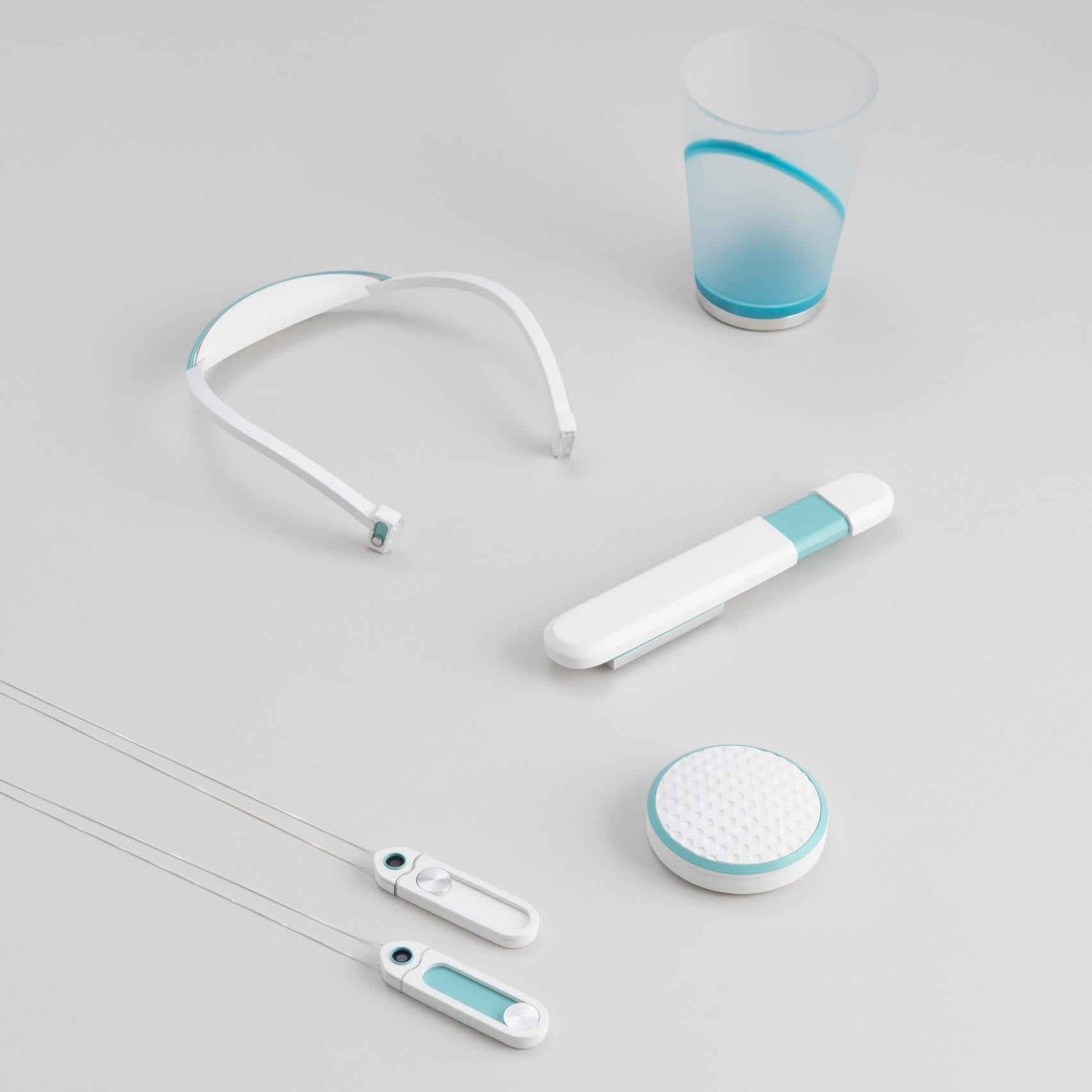
A cup that detects drink spiking and a scrambler to block upskirting photos are among five product concepts developed by students from Brunel University to help women defend themselves from physical and sexual harassment.
The speculative project saw students envision gadgets for American jeweller Tiffany & Co based on emerging technologies, which they think will be available within the next 10 to 15 years.
At the New Designers graduate showcase in London, these concepts were exhibited in the form of full-scale models, designed to suggest how companies could help address growing fears around violence against women in cities.
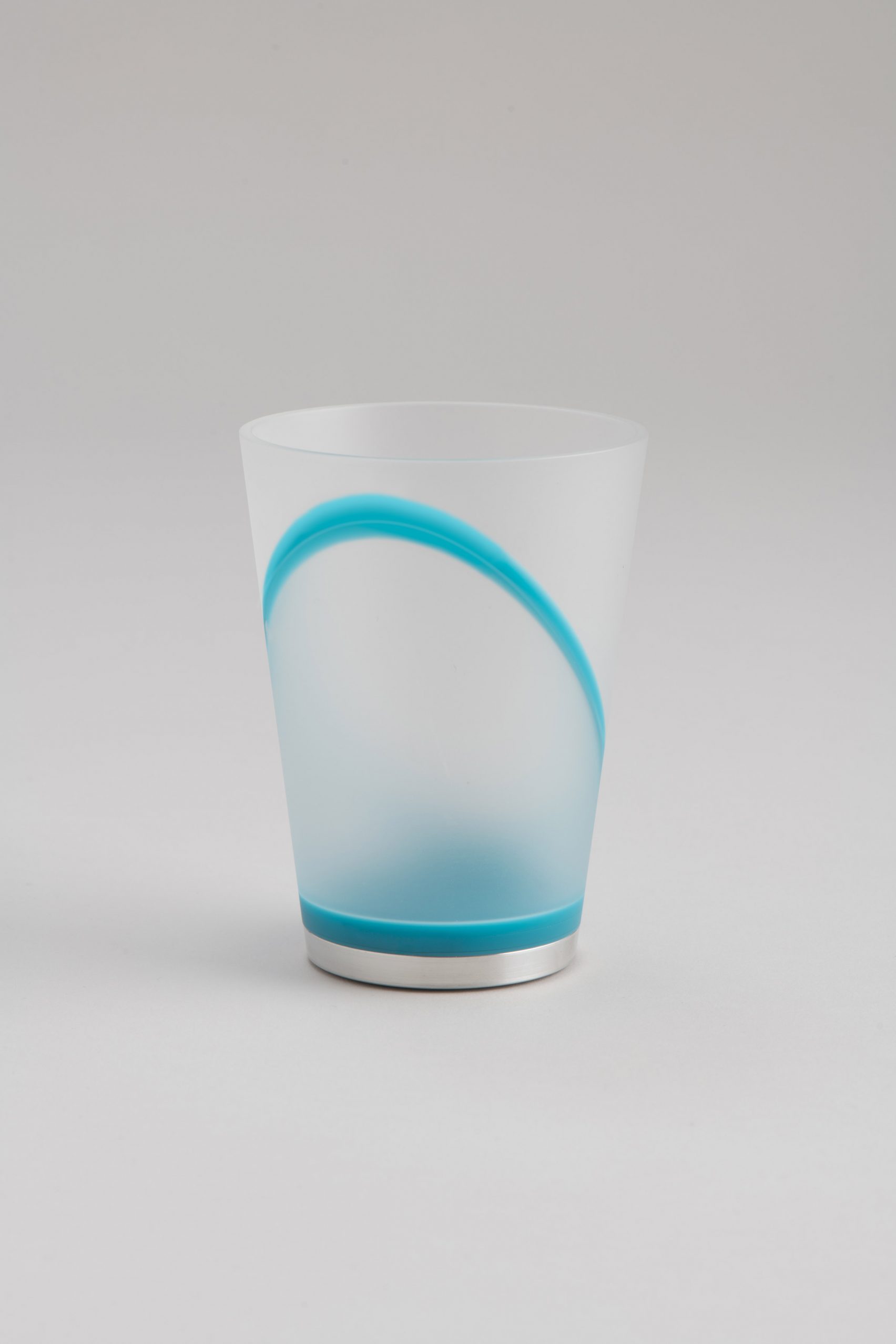
The project was a direct response to the high-profile murders of Sarah Everard and Sabina Nessa – two British women who were attacked and killed last year while walking home alone at night.
Although unrelated, the cases spawned widespread discussions around women's safety, alongside statistics showing that incidents of drink spiking and domestic abuse are currently on the rise in the UK.
"This is a huge problem and if nothing is done, it is only going to be exacerbated in the future," Brunel student Chloe McCourt told Dezeen.
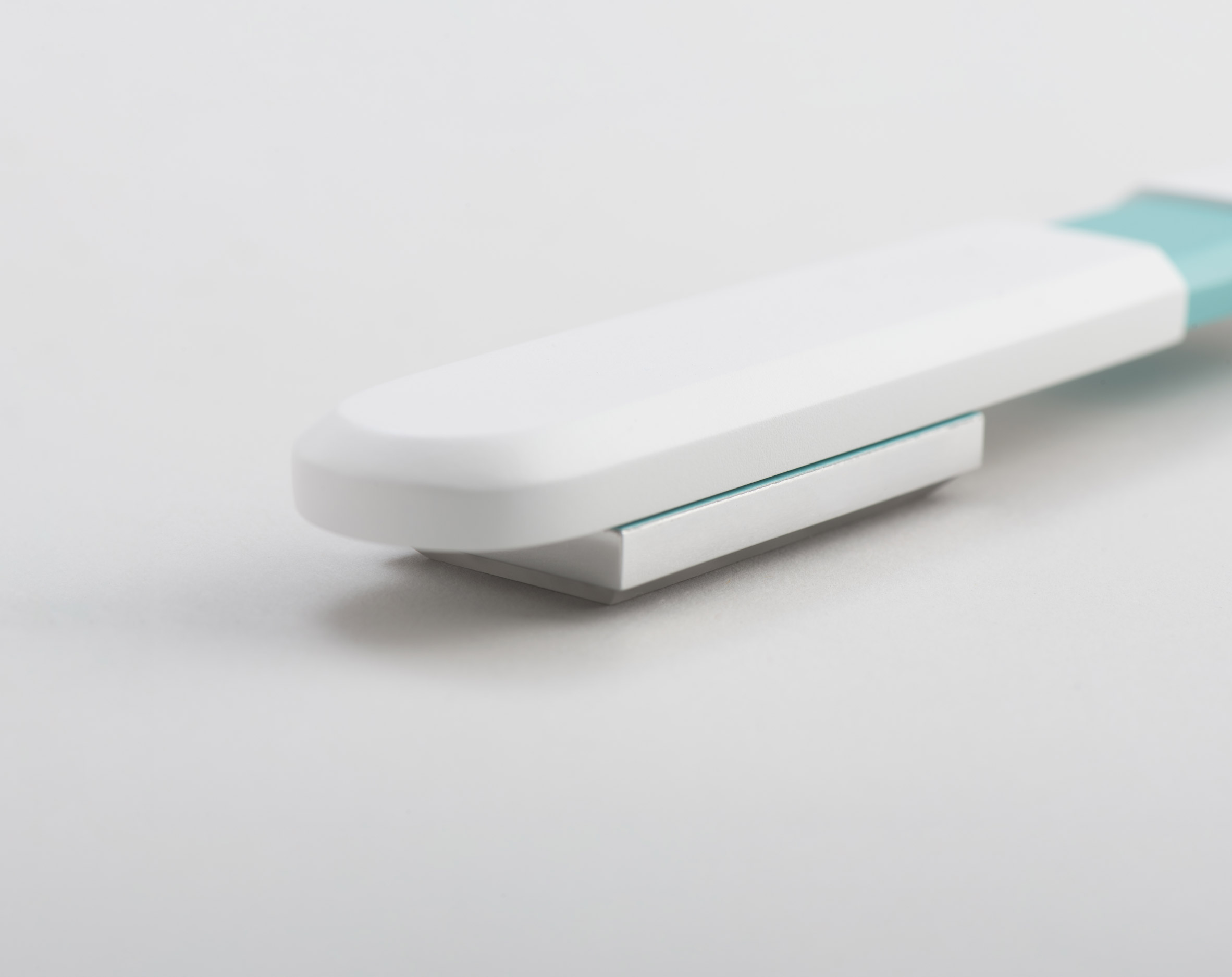
Globally, one in every three women has experienced physical or sexual violence in her life, without accounting for the spike in gender-based violence that was caused by the coronavirus pandemic.
The Brunel University students argue that companies like Tiffany & Co should take the initiative by creating products to help combat this issue, as they are already trusted by women and claim to promote female empowerment.
In this spirit, their product concepts are conceived as wearables and accessories finished in the brand's signature Tiffany Blue, with each designed for a different setting from the pub to the workplace.
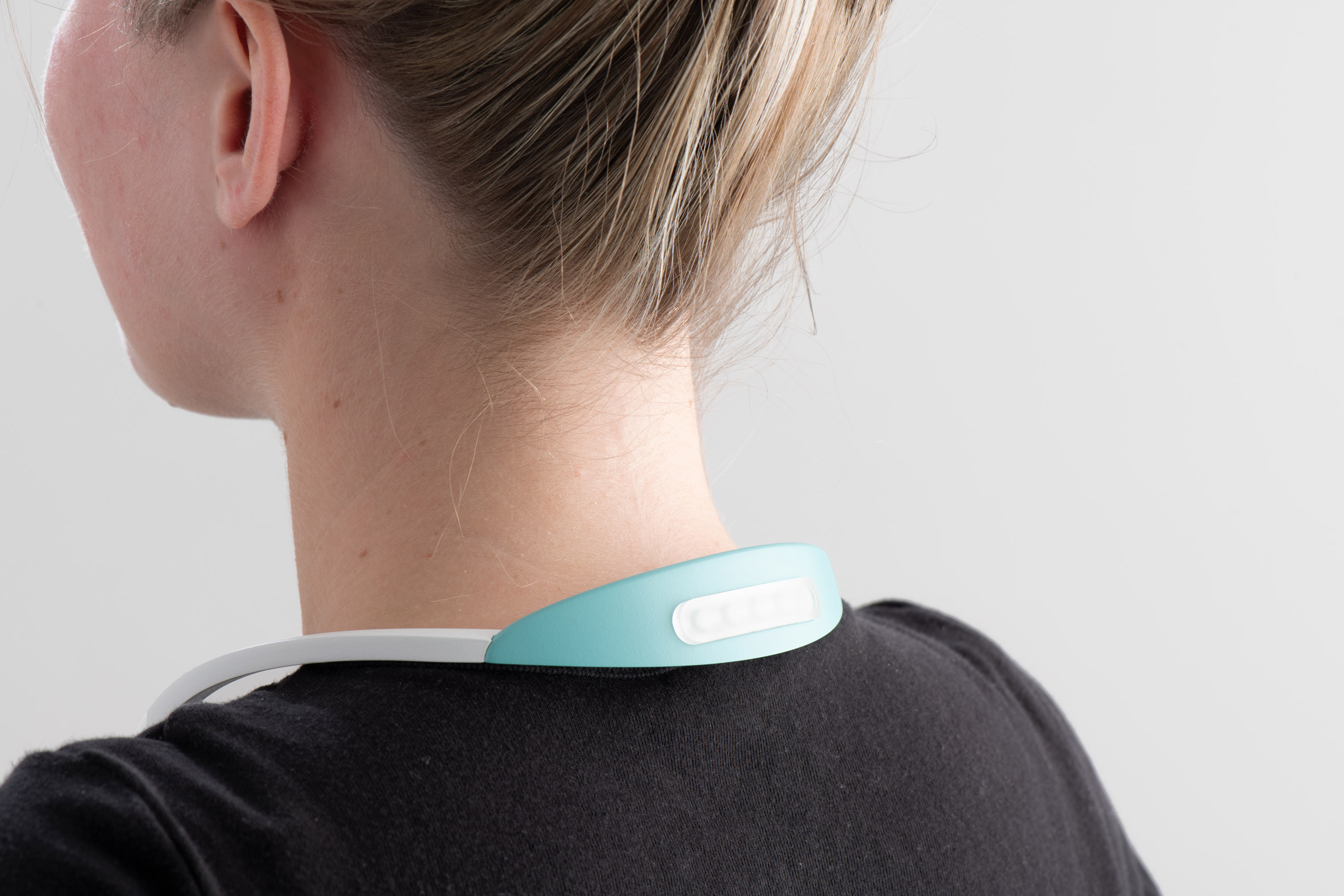
"All of the technology has scientific evidence behind it to show that it is possible," McCourt explained. "But some may be easier to implement sooner than others."
To help women feel safer while on a night out, student Henry Copeland conceived a cup with a smart sensor built into its base, which would flash red when detecting that a drink has been spiked with date-rape drugs.
"Afterwards, it can be put in the dishwasher," McCourt explained. "And the heat from the water will reset the sensor so it can be reused."
Wysiana Patricia tackled the issue of upskirting on public transport, which involves taking a picture up someone's skirt or dress without their consent.
In response, she envisioned a pocket-sized scrambler that women can fix to the bottom of their handbags, which would emit infrared radiation to interrupt any visual recordings taken from underneath.
"Infrared actually scrambles photos," explained fellow student Stanley Binns. "People like Roman Abramovich have it on their yachts."
"So if someone tried to take a photo, it would scramble the picture and then send a message back to the person who took the photo to let them know that they've been caught and hopefully get them to stop doing it."
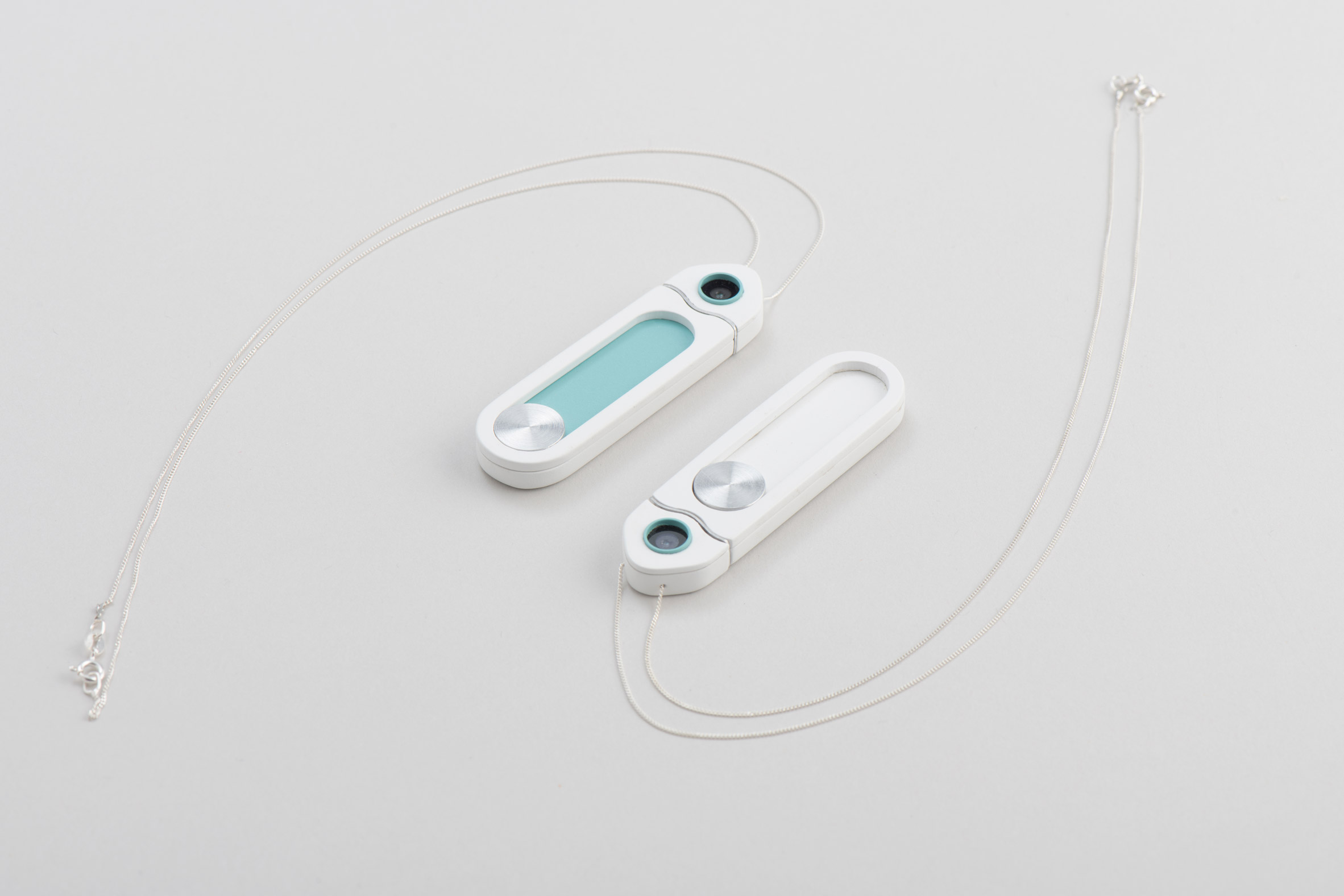
Similarly, Sophie Lazenby developed a torque necklace that women can wear as a non-violent defence mechanism while walking home alone.
Unlike mace and pepper spray, which are considered firearms and thus illegal in the UK, this would make use of LED lights integrated into the front and back of the device alongside pulse and motion sensors to detect potential threats.
When activated, the LEDs would emit bright flashes and strobes of light to distract the perpetrator through a confounding, nauseating effect called flicker vertigo.
"It makes you feel really disorientated just from staring at the flickering light," Lazenby said. "And that gives the woman a chance to either run, call for help on the phone or go to the nearest shop."
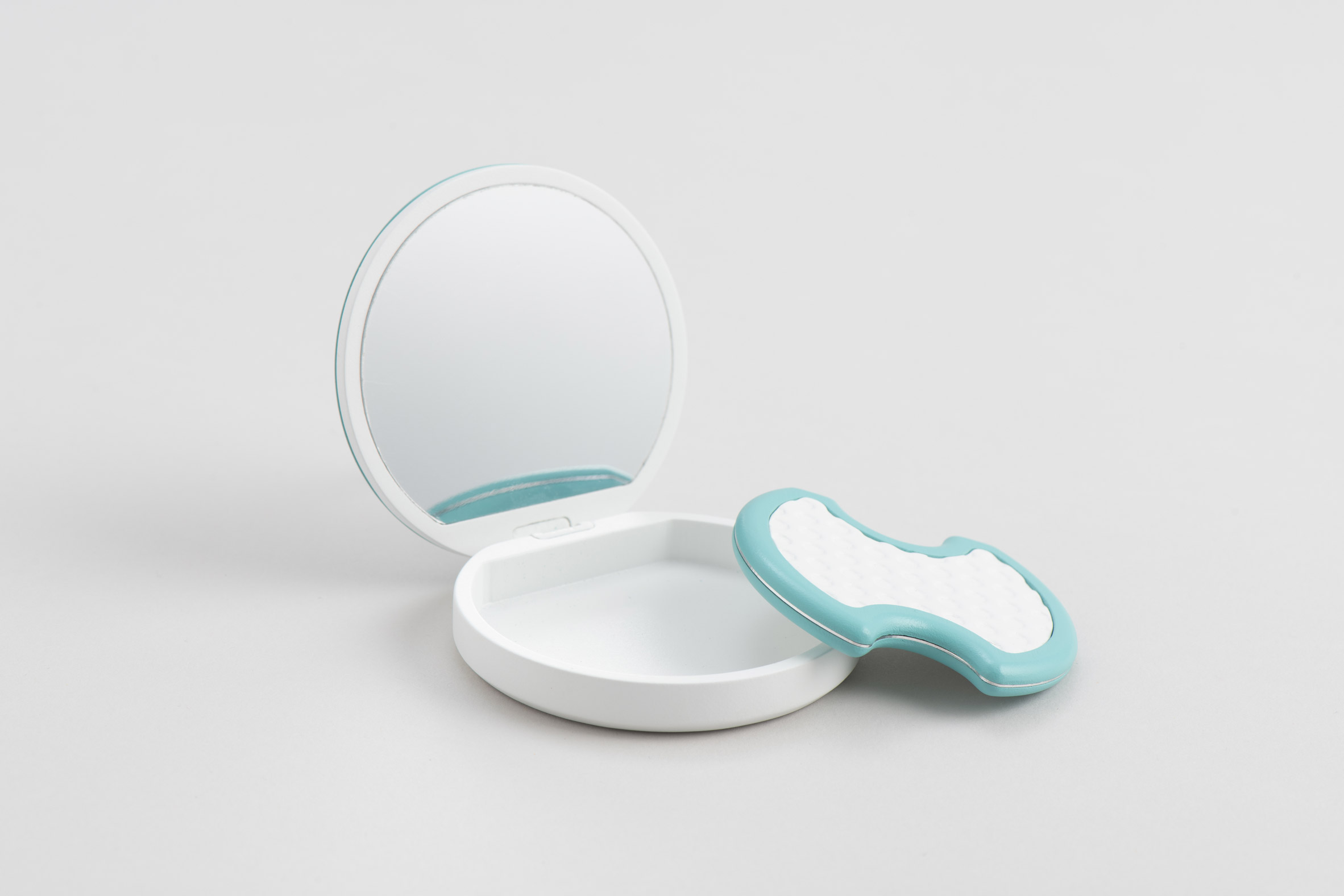
McCourt's own project is another wearable piece of technology in the form of a necklace, which uses machine learning to detect when the wearer is being harassed in the workplace and changes colour to warn the perpetrator to cease their behaviour.
"If they don't, the camera will record what's going on and then send the video to HR, so there are no repercussions for the person speaking out," the student explained
"Unless you're going to sexually assault someone, then you're not going to set it off so you don't need to worry about surveillance."
Finally, Binns's project deals with the traumatic after-effects of experiencing domestic abuse in the form of a small, compact mirror, which doubles up as an on-the-go therapy tool for victims of domestic abuse.
This contains vibrating pads that provide haptic feedback, making use of an experimental type of psychotherapy called EMDR that was developed in the 80s to help patients cope with traumatic experiences.
"When you have debilitating feelings of anxiety, which can come on at any time, especially with PTSD, you could just take 15 minutes out, go sit on a park bench and hold the haptics in each hand," he explained.
"They vibrate from side to side while you think about your past and it actually helps you re-process it."
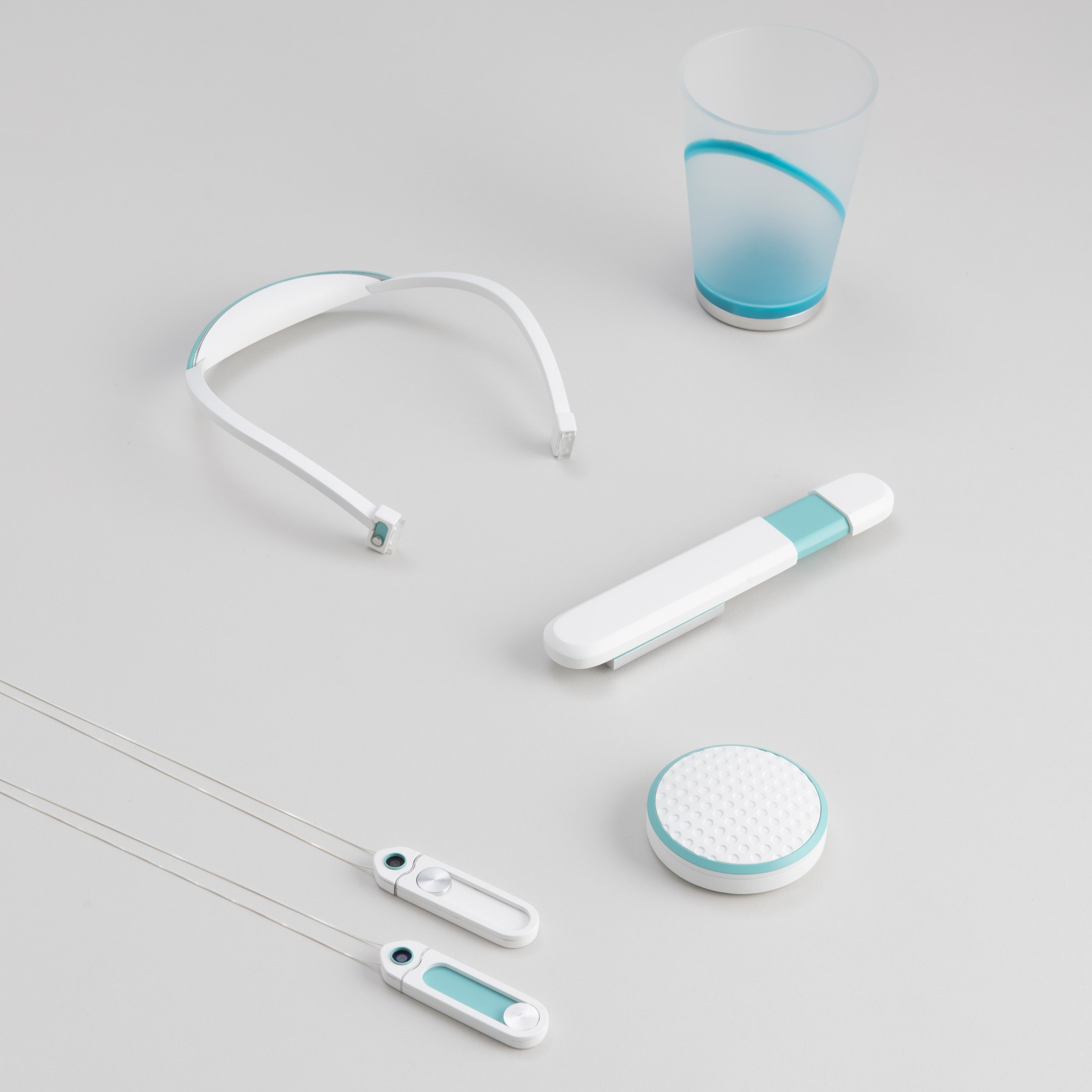
Other designers that have addressed similar issues around women's safety include Rotterdam-based Ismay Schaduw, who created a collection of bulletproof vests for women after discovering that safety equipment rarely affords them with the same level of protection as men.
The New Designers show took place at London's Business Design Centre from 29 June to 9 July 2022. See Dezeen Events Guide for an up-to-date list of architecture and design events taking place around the world.
The post Speculative accessories designed to help women protect themselves from harassment appeared first on Dezeen.

